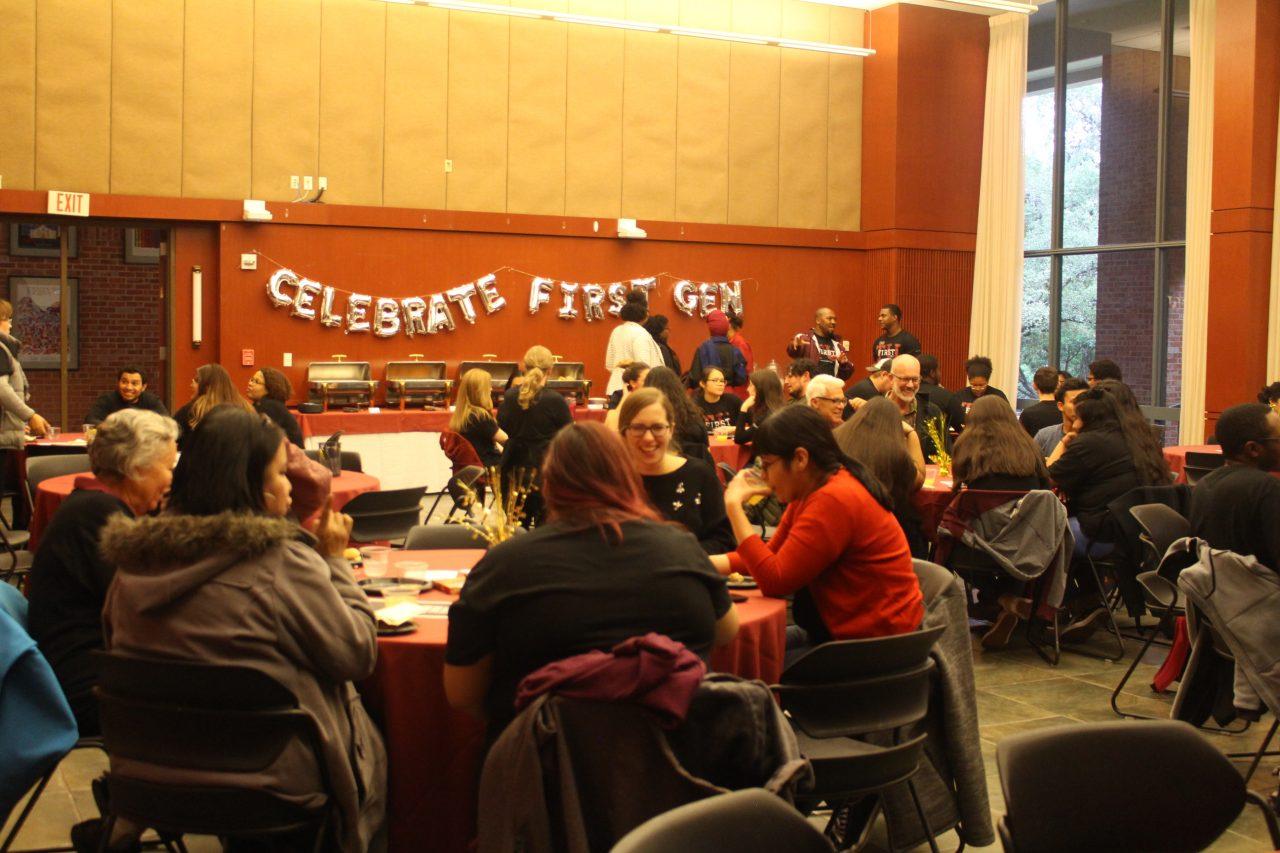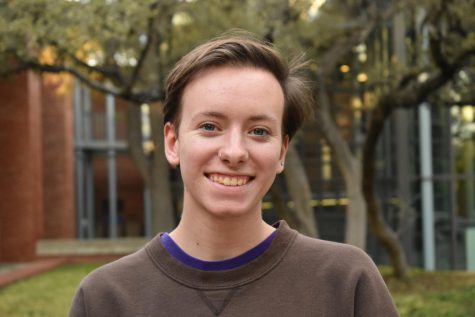Photo by Mona Mirpour
Nirav Mehta, associate professor in physics and astronomy, came from India to the United States when he was 2 years old. His parents had college degrees from India, but he said once in the states, their degrees were worth much less. When it was time to apply for college in the United States, Mehta said he was on his own.
“I didn’t know what a fraternity was,” Mehta said. “I didn’t know that they existed. I didn’t know that I could live off-campus or on-campus. My parents didn’t know. My parents didn’t help me fill out those college applications.”
Mehta spoke about his experiences as a first generation student in the United States on Trinity’s First Generation Student panel on Nov. 7. Moderated by Oscar Jiménez-Castellanos, chair of the Department of Education, the panelists also included Nicolle Hirschfeld, professor in classical studies; 2017 Trinity graduate Amanda Cantú; Myeshia Smith, assistant director for Student Accessibility Services; and Sheryl Tynes, vice president for Student Life. The panel took place in Northrup 040 and about 50 people attended.
“I come from a very low-income Latino household,” Cantú said. “I grew up in poverty. I was homeless for a good amount of time in my life. I faced a lot of challenges related to abuse and neglect and when I was in high school, I never would’ve imagined I would end up at Trinity.”
Being a first generation student means being the first in your family to attend college. For the panel’s purposes, it meant the first to attend college in the United States.
On Nov. 8, 1965, the Higher Education Act of 1965 (HEA) was signed into law, expanding federal funding for post-secondary students. HEA is the reason many people from low-income backgrounds are able to enter higher education. According to Jiménez-Castellanos, being first-generation is only one part of a broader, more intersectional student population.
“Being first-gen isn’t your one and only identity,” Jiménez-Castellanos said. “And in fact, as some highlighted, it might not even be in your top 10 as an individual. We all have these social constructs, so as a healthy ecosystem within Trinity University, how do we acknowledge the intersectionality and diversity within our student populations? How do we promote spaces that are open and safe for all?”
All the panelists said it was hard to feel belonging among legacy students, and there was often guilt around spending money for an education when oftentimes, their families were suffering at home.
“The four years that I was in college, my family was back at home in a really hard place and I was here, furthering my education,” Cantú said. “And yeah, I worked, and yeah, I was able to support myself, but every few months my mom was calling, like, ‘I need help with rent. What can you do?’ It’s really hard for some students in that regard.”
With tears in her eyes, Smith talked about the guilt that often weighs on first generation students’ shoulders. She called it the “it” that stops students from graduating.
Smith said she felt the pressure to succeed, so she pushed through undergraduate, a master’s program and finally went to Indiana State University for her Ph.D. Even when she had made it to Indiana, she still felt at odds with other students for whom higher education came so naturally.
“People would always assume that I was in the master’s program, even after me telling them [I was in the Ph.D. program],” Smith said. “I felt that my experiences were different than the other Ph.D students. They seemed so prepared and could talk to their parents about these experiences. When I reflect over all of my educational experiences, I think that I had a lot of questions. I was very curious. I learned to seek out support and resources, and I also learned that first generation student is one component of my overall identity that is nothing for me to be ashamed of.”
With only 35 percent of the U.S. population holding college degrees, Tynes reminded Trinity first-generation students that they will soon be part of an elite group even though their background may be far from it. Hirschfeld said in order to get through her difficulties of being a first- generation student — difficulties like going to school every other semester while waitressing in between — she held onto her dream career for after college.
“I lived in a car and my dad was hunted by the law, so we couldn’t fill out the financial aid forms, but somehow they inculcated in me the dream to do something,” Hirschfeld said. “I wanted to see the world and the only way I could figure out how to do that was to become an archeologist.”
Junior Diana Long helped promote the panel by putting up flyers and passing out T-shirts.
A first-generation student herself, Long said it was beneficial to have faculty speak to their experiences, something she wished happened throughout the year. Long also attended the first generation student celebration on Friday, Nov. 8, where students with similar experiences were able to connect by hanging out and playing games.
“More pride, more presence, more support for first gen would be great, and I think a really good way of doing that is the panel,” Long said. “It was good to hear from a faculty perspective; ‘I was also first-gen and I’m here now.’ I find that really powerful.”














